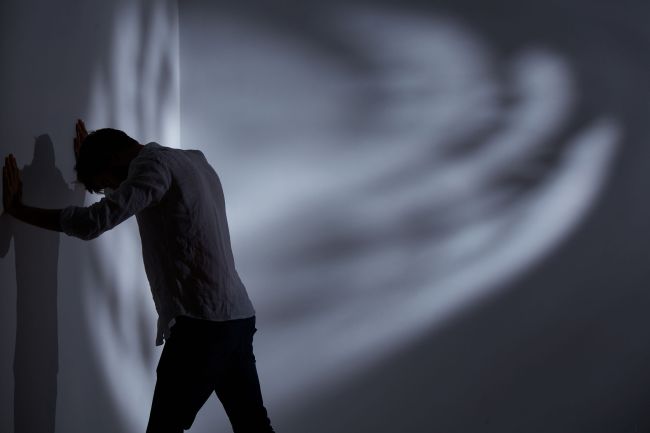Police have hospitalized a number of mentally ill people since a murder and arson case in Jinju made headlines last week, involving a suspect believed to be mentally ill.
The Gimhae Jungbu Police Station in South Gyeongsang Province booked a 39-year-old man accused of threatening the chief manager of his apartment complex with a weapon, and had him admitted to a mental hospital last week.
The Gimhae Jungbu Police Station in South Gyeongsang Province booked a 39-year-old man accused of threatening the chief manager of his apartment complex with a weapon, and had him admitted to a mental hospital last week.

Upon his arrest, the man told police he was suffering from schizophrenia and depression. The court denied a warrant to detain him, saying he was not a flight risk, and the police subsequently had him hospitalized.
Police have been criticized for not taking appropriate action despite receiving eight 112 emergency calls from victims of the arson and stabbing rampage in Jinju last Wednesday prior to the incident.
In Suwon, Gyeonggi Province, police booked and hospitalized a man in his 50s who they say made a scene on the streets with an industrial cutter after a car honked at him for jaywalking. Police shot him with a stun gun.
The man did not threaten a specific person, but his family said he had been mentally ill for some 10 years. Police had him hospitalized under the mental health law.
According to the law, anyone who discovers a person believed to be mentally ill and highly likely to present a danger his or her own health or safety, or that of other people, can request that person’s emergency hospitalization with the consent of a medical doctor and a police officer.
National Police Agency chief Min Gap-ryong said in a press conference on Monday that police, for the next five weeks, will review all reports on repeated blackmail cases and share the results with the relevant agencies to take appropriate measures.
The Korean Neuropsychiatric Association said in a statement on Monday that the government should be responsible for hospitalizing patients with serious mental illnesses and having them receive medical treatment.
Under the current rules a person can be hospitalized against his or her will at the request of two or more people “responsible for protective custody or care,” as long as two or more medical specialists from different mental hospitals concur.
A committee deliberates on whether the forced hospitalization is necessary.
Due to the strict rules and complex procedures, the families of mentally ill people who require hospitalization often give up.
In the case of Jinju arson and murder suspect Ahn In-deuk, his brother had tried to get him hospitalized, but this was impossible under the current rules, according to the association.
Under the Korean Civil Act, a person “responsible for protective custody or care” is either a guardian or someone with the duty to provide support for another person.
“Parents of the mentally ill in their 30s and 50s are too old to look after their children, and many don’t live with their family members,” the association said.
“The families shouldn’t be left with the responsibility over the patients.”
Advanced nations such as the US and Germany allow judicial hospitalization, and countries such as the UK and Australia have mental health tribunals to determine whether a mentally ill person should be hospitalized by force.
Korea allows emergency hospitalization and hospitalization ordered by mayors or chiefs of counties and wards, but this rarely happens due to fear of lawsuits.
“Even the police find it difficult to get a person hospitalized for fear of complaints or administrative suits unless they see (the person) hurt himself or others,” the association said.
“Hospitalizations ordered by mayors or wards chiefs are also difficult to execute as they require obtaining a waiver from people responsible for custody of the mentally ill persons.”
By Kim So-hyun (sophie@heraldcorp.com)



![[AtoZ into Korean mind] Humor in Korea: Navigating the line between what's funny and not](http://res.heraldm.com/phpwas/restmb_idxmake.php?idx=644&simg=/content/image/2024/04/22/20240422050642_0.jpg&u=)
![[Exclusive] Korean military set to ban iPhones over 'security' concerns](http://res.heraldm.com/phpwas/restmb_idxmake.php?idx=644&simg=/content/image/2024/04/23/20240423050599_0.jpg&u=20240423183955)



![[Graphic News] 77% of young Koreans still financially dependent](http://res.heraldm.com/phpwas/restmb_idxmake.php?idx=644&simg=/content/image/2024/04/22/20240422050762_0.gif&u=)
![[Herald Interview] Why Toss invited hackers to penetrate its system](http://res.heraldm.com/phpwas/restmb_idxmake.php?idx=644&simg=/content/image/2024/04/22/20240422050569_0.jpg&u=20240422150649)






![[Exclusive] Korean military to ban iPhones over security issues](http://res.heraldm.com/phpwas/restmb_idxmake.php?idx=652&simg=/content/image/2024/04/23/20240423050599_0.jpg&u=20240423183955)



![[Today’s K-pop] Ateez confirms US tour details](http://res.heraldm.com/phpwas/restmb_idxmake.php?idx=642&simg=/content/image/2024/04/23/20240423050700_0.jpg&u=)